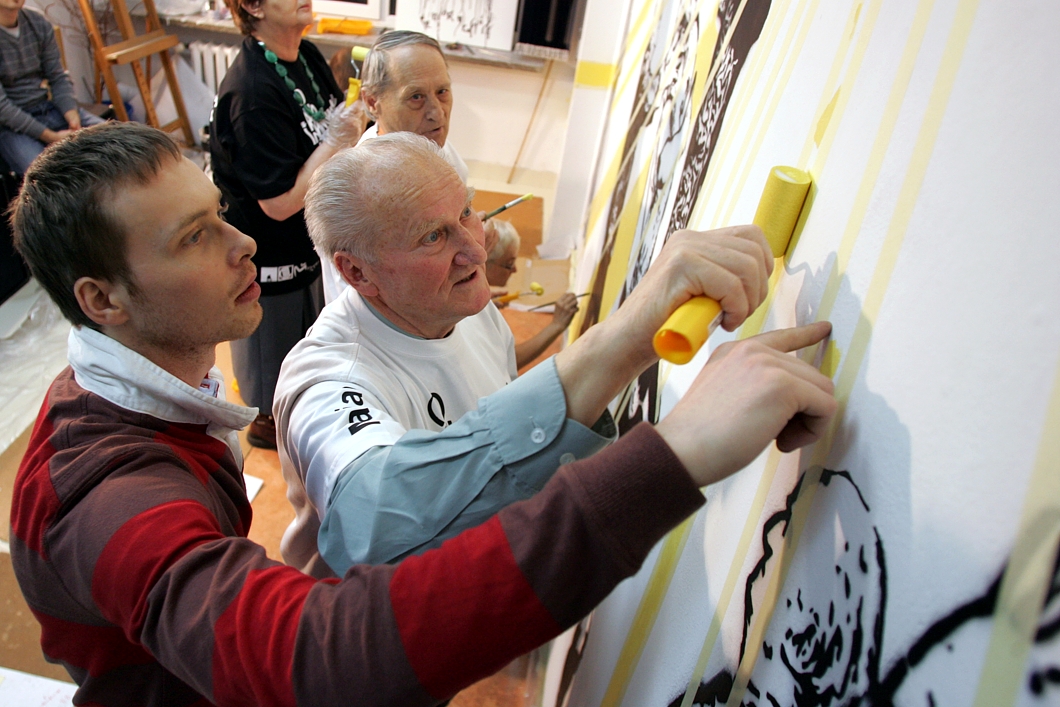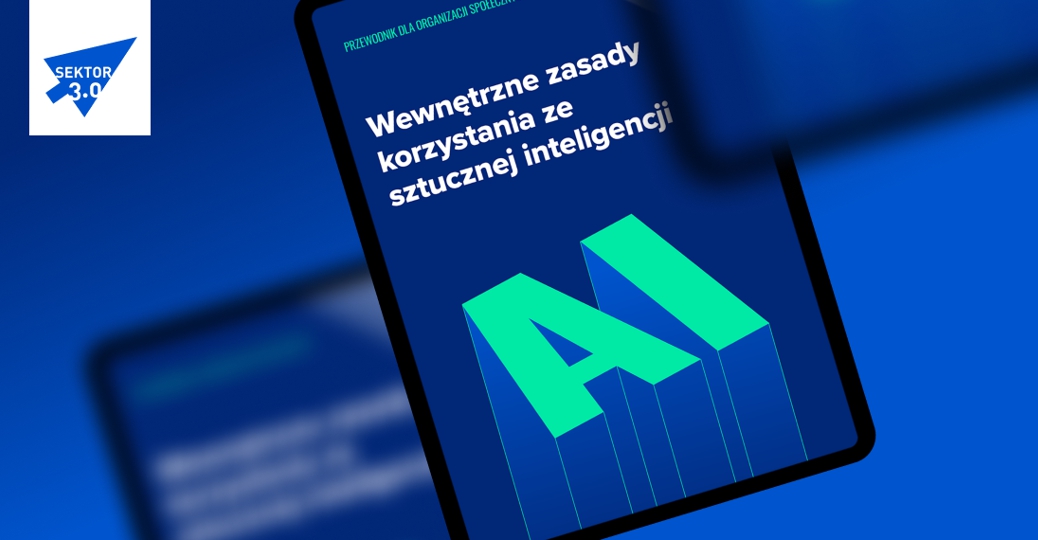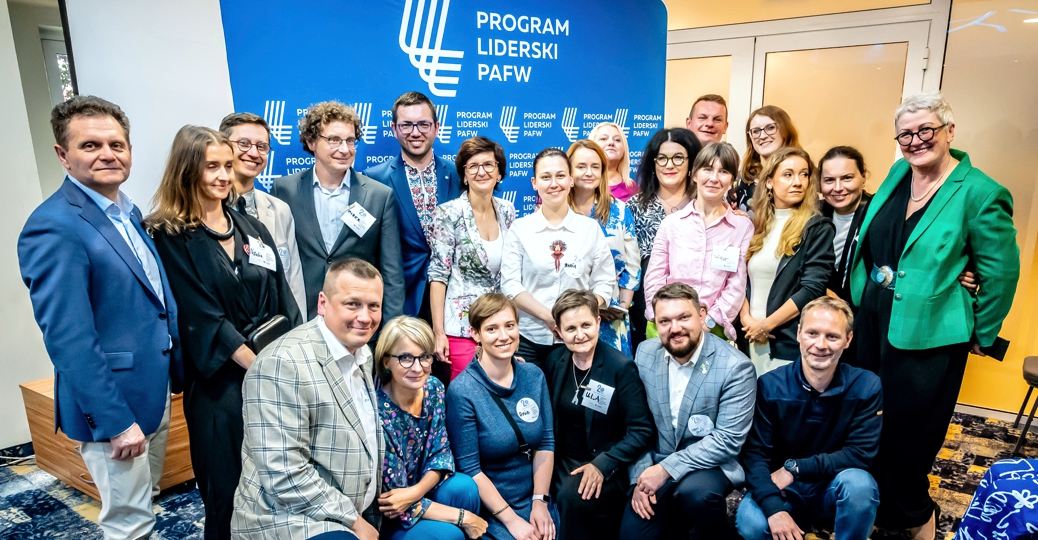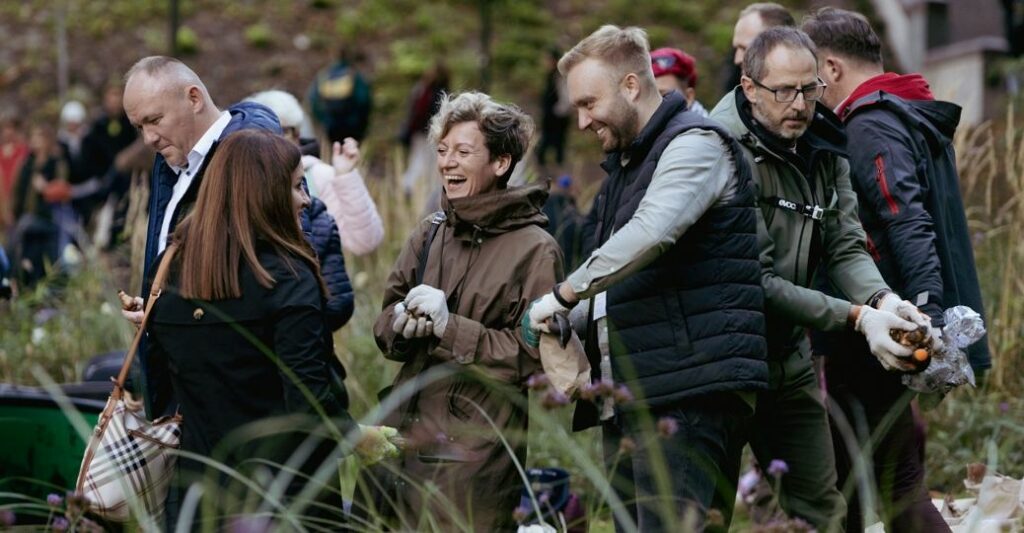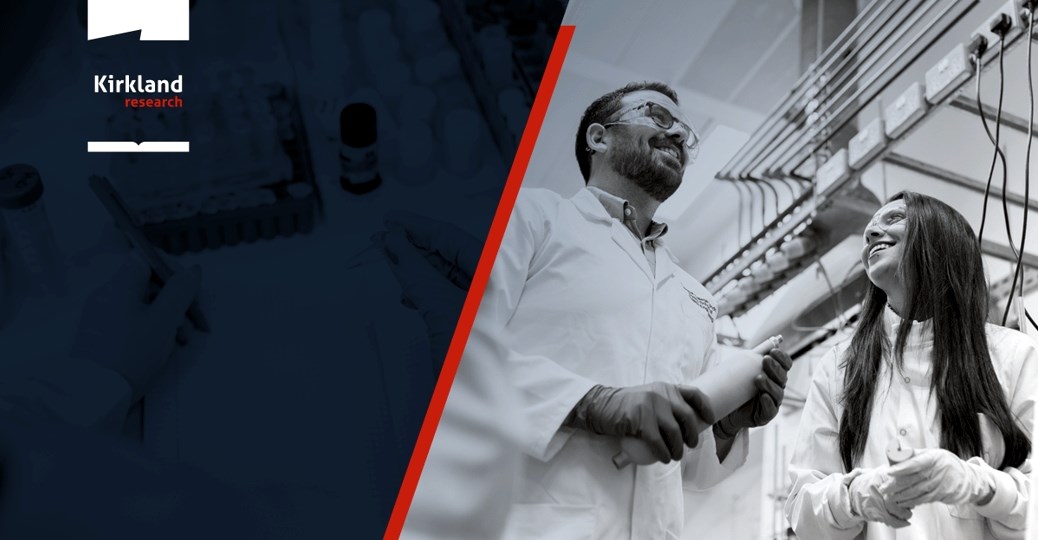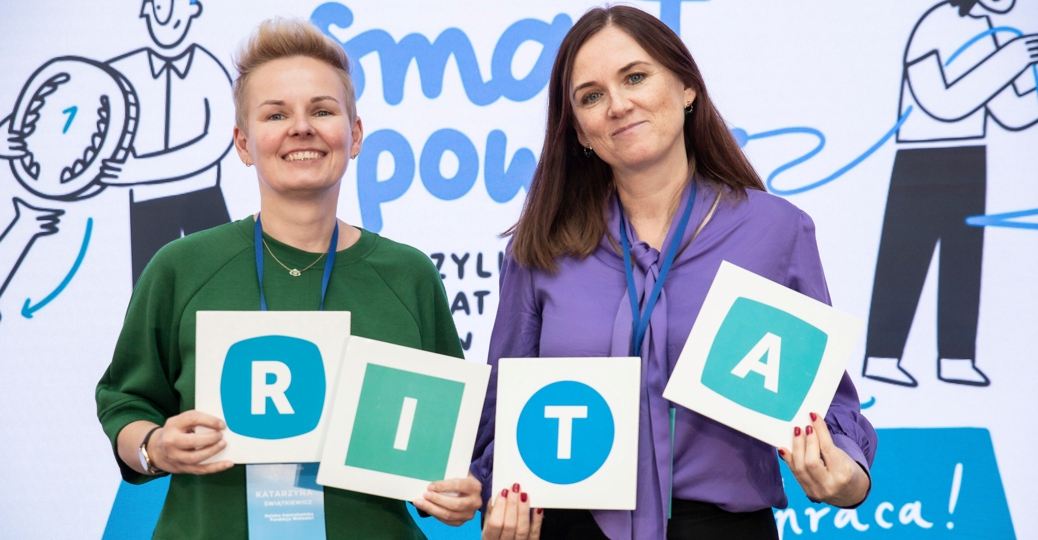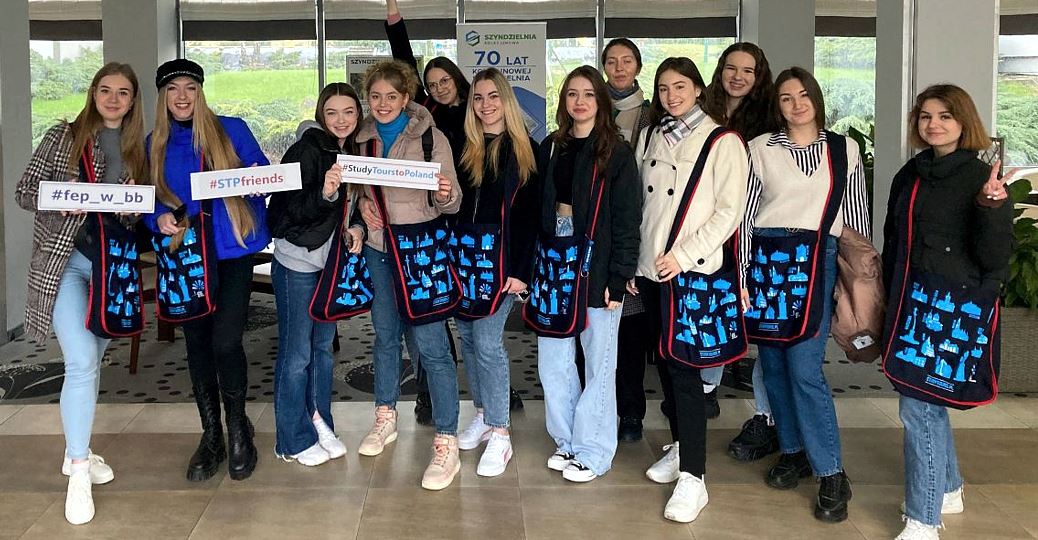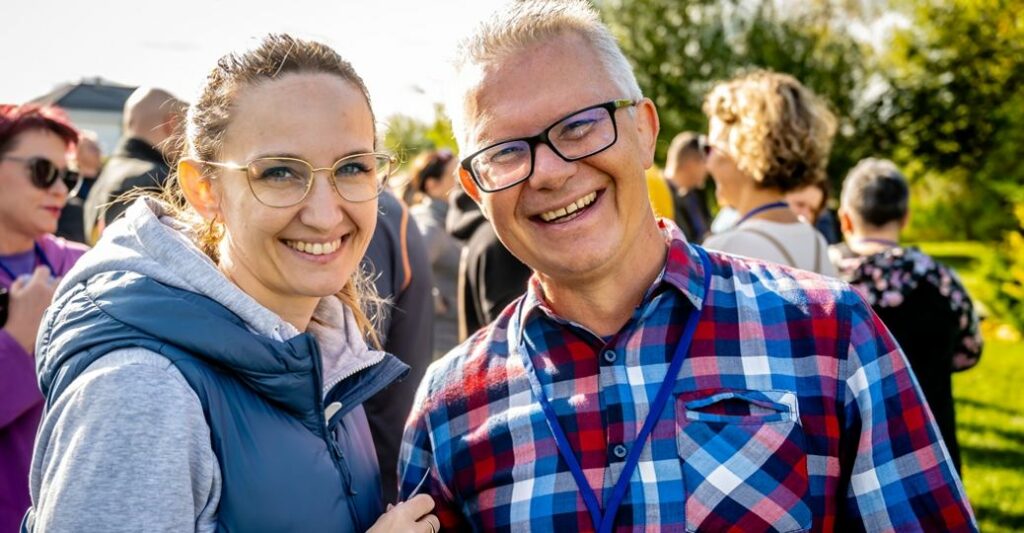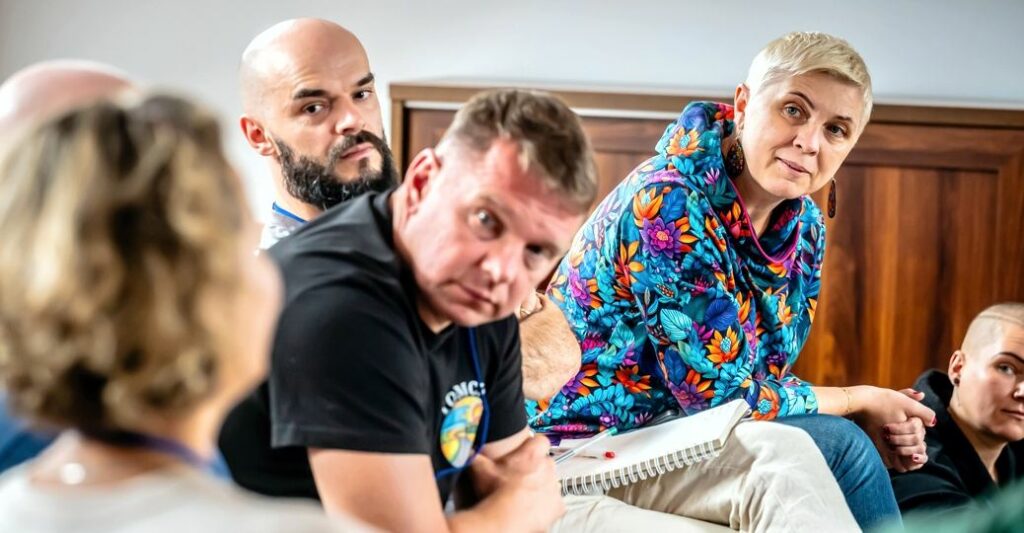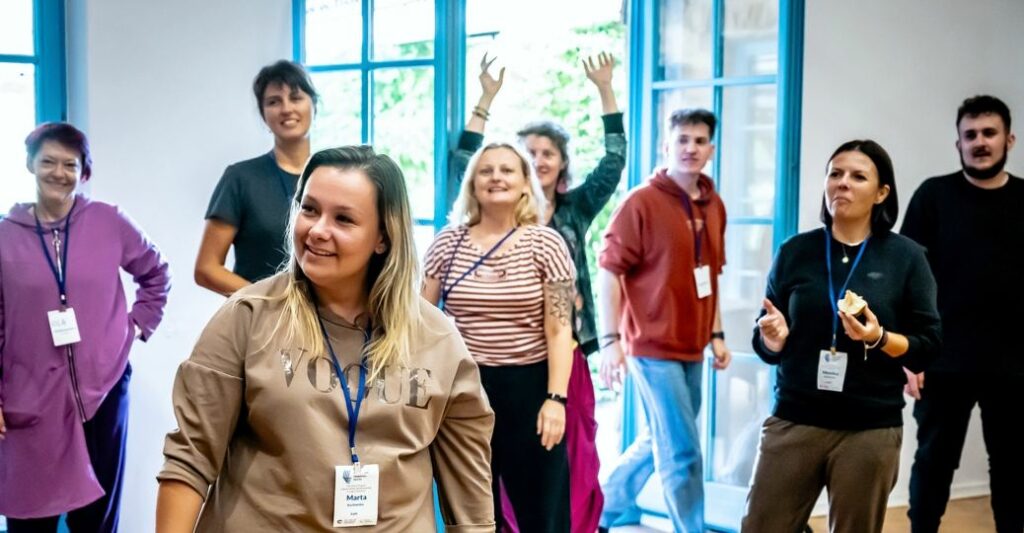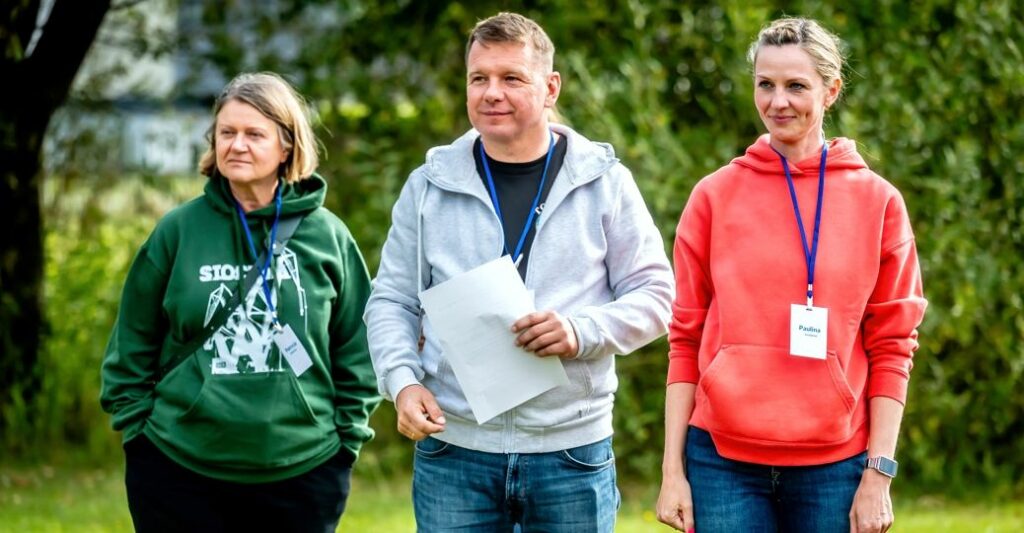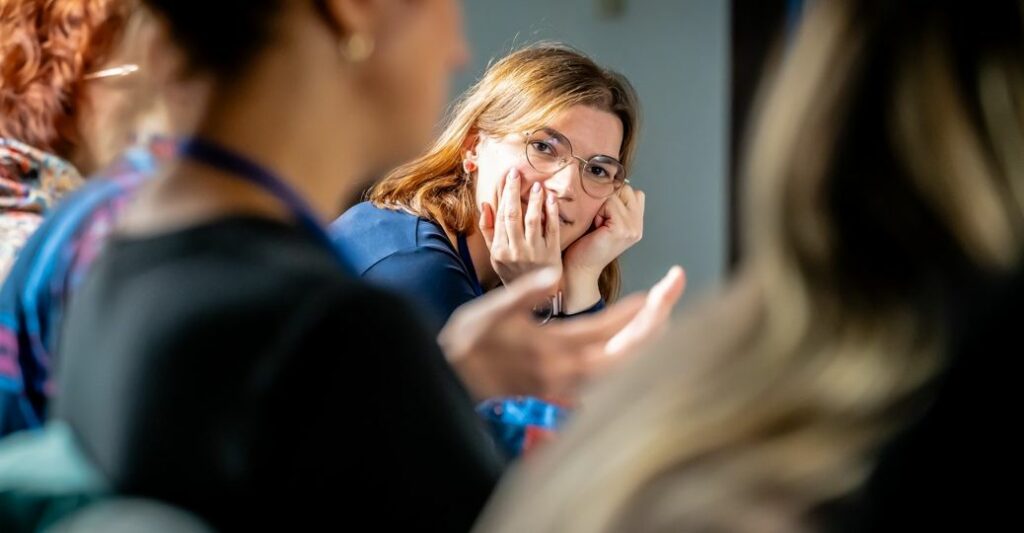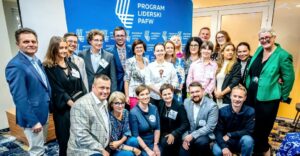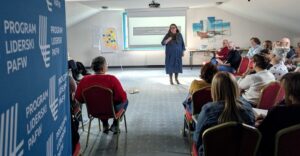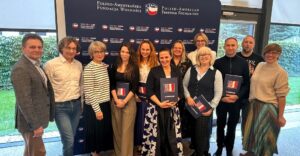The main theme of the first meeting of the 21st round of the “PAFF Leaders” program, which took place on September 16-20 in Książenice near Warsaw, was diversity as an opportunity to broaden perspectives and, at the same time, find common ground for dialogue.
The guests were welcomed by Agnieszka Szelągowska, head of the “PAFF Leaders” program, and Radosław Jasiński, Program Director of Polish-American Freedom Foundation. Sixty-five people from all over Poland were invited to participate in a multidimensional, in-depth process worth “immersing” themselves in and experiencing. It was also an invitation to get involved and create an entire leadership community for the program.
The opening speeches of the 21st round of the “PAFF Leaders” program were given by Krzysztof Czyżewski, co-founder of the Borderland – Arts, Cultures, Nations Center in Sejny and president of the Pogranicze Foundation, and Katarzyna Czayka-Chełmińska, long-time Head of the “PAFF Leaders” program.
Krzysztof Czyżewski told the participants about “The art of building bridges in a world of external and internal borders,” symbolizing “borderland thinking,” which is an attempt to connect what has been separated. The co-founder of the Pogranicze – Arts, Cultures, Nations Center in Sejny calls this “building connective tissue” by implementing the concept of creating many small centers of the world – “because in them, in these micro-communities, there is a global ‘eye of the storm. This is where the real building of invisible bridges takes place – those between people, between generations, between cultures,” said Krzysztof Czyżewski.
Katarzyna Czayka-Chełmińska presented the history of leadership journey and the path to conscious leadership in accordance with one’s own values. The meeting with the creator of the program’s methodology and long-time president of the Zbigniew Pełczyński School for Leaders gave participants an opportunity to understand and reflect more deeply on their leadership, the decisions they make, and the changes they bring about.
The first meeting of the 21st round marks the beginning of a year-long development process in the “PAFF Leaders” program. It was an opportunity not only to meet, experience, and talk, but above all to learn new tools, practice, and develop leadership skills through involvement in various forms of activity.
Traditionally, the workshops used outdoor methods and training games, which enabled the leaders to take a practical look at their role in the team. Issues of leadership self-awareness were explored in depth during subsequent modules and competency workshops at the September meeting – from feedback, introduction to leadership, conducting courageous conversations in situations of difference, and finally, working on planning one’s own leadership development.
Responding to the challenges of the surrounding world and the visible polarization of society process, the School of Leaders uses tools to build dialogue, conduct conversations, build understanding, and cooperation. During the meeting, participants learned how to conduct conversations in situations of disagreement based on the “Courageous Conversation Laboratory” method developed at the School of Leadership.
They also shared their personal perspectives in order to more fully and consciously carry out their leadership mission and bring about change in their communities:
“We are very different, and yet so similar in what we do. Each of us, acts in our own environment, whether local, slightly broader, or nationwide.”
“Showing how values and awareness of the leader’s role can influence development and the process of change. By combining knowledge with her own experience, the speaker’s presentation not only broadened my perspective, but also inspired me to reflect on my own role and opportunities for action.”
“The story of personal leadership moved me. At the same time, it showed me the path to conscious leadership, a path that I can influence. For me, Kasia’s story is a lesson that I listened to attentively and absorbed the most important elements, such as ‘watching a new leader emerge in a team’ and ‘giving yourself permission to make mistakes”.
The goal of the “PAFF Leaders” program is to support the development of skills and qualifications of people who act for the benefit of their communities, mainly through the use of tutoring, which involves ongoing cooperation between a local leader and an experienced tutor.
The results of the twenty rounds of the program to date include improvement of the qualifications of 935 local leaders from all over Poland and the creation of their active nationwide network, as well as the training of 72 specialists in the use of the tutoring method.
The program is implemented by the Prof. Zbigniew Pełczyński School of Leadership Foundation.









